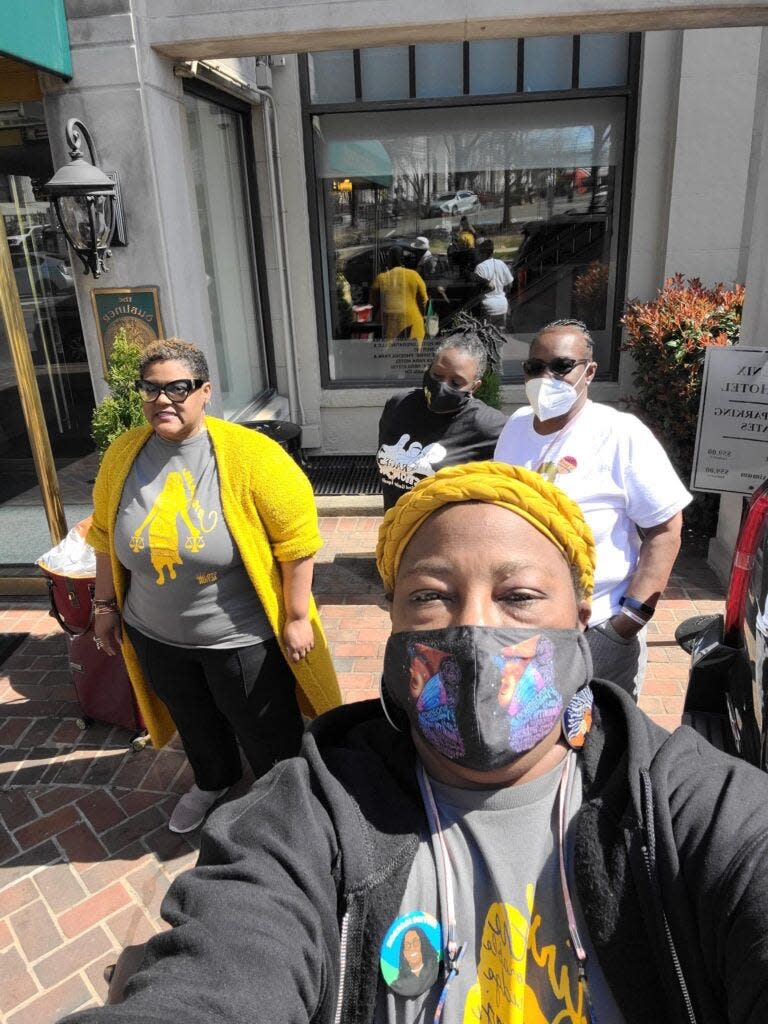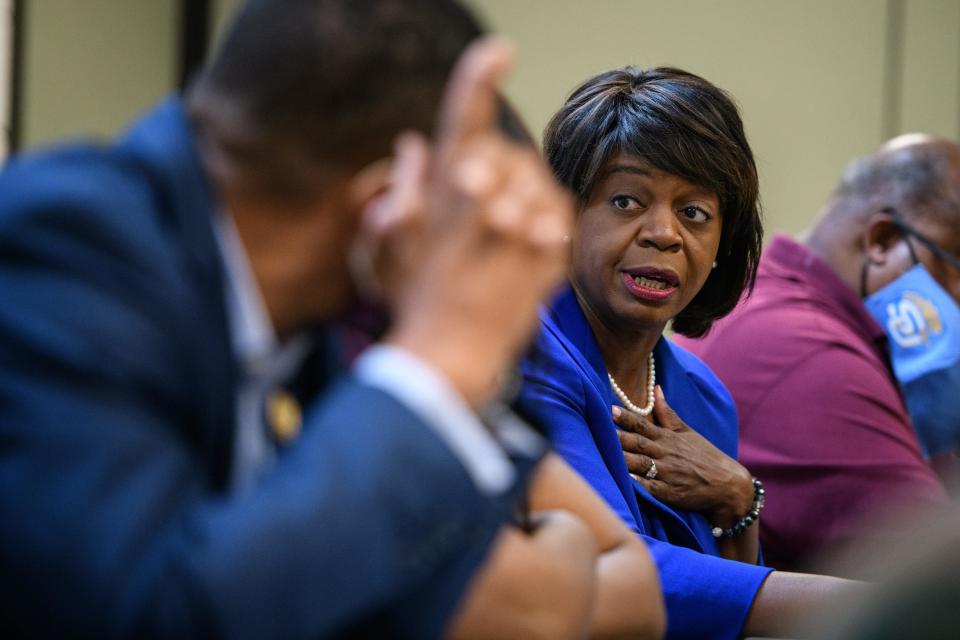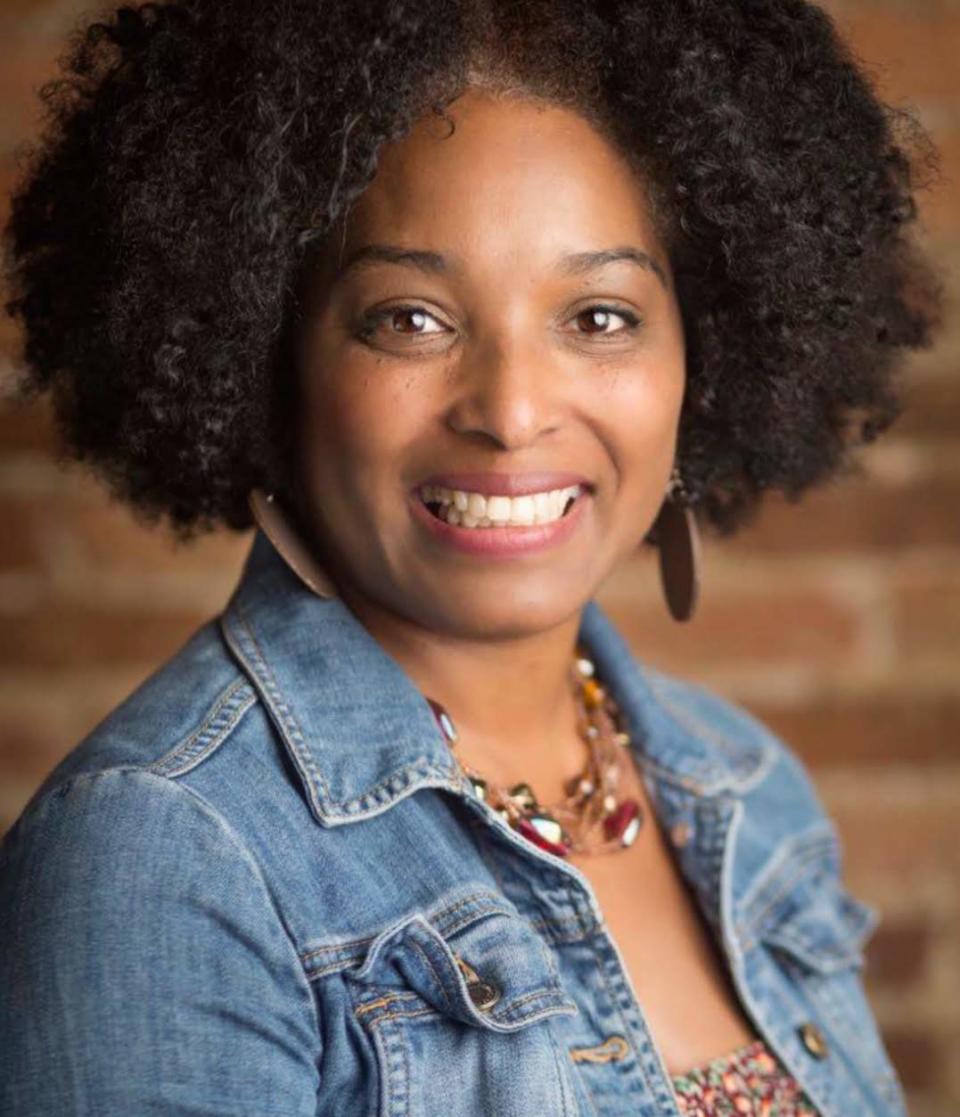Fayetteville activists: Abortion ruling will hurt pregnant Black women
Black mothers’ health outcomes are far worse than white mothers because of systemic racism and a gap in available resources, studies show. Black women, for example, are three times more likely to die while pregnant than white women.
Local advocates who want to improve health care for pregnant Black women say Friday’s U.S. Supreme Court ruling overturning federal abortion rights will make a bad situation worse.
Carrol Olinger, the Fayetteville area organizer for Action NC, said the impact on communities of color is going to be “devastating.” The statewide group advocates for racial and gender equity.

More: What does the Supreme Court abortion ruling mean for NC? 3 things you need to know
“It’s going to make people resort to backdoor ways to get services that they need,” she said shortly after Friday morning's ruling. “This is terrible. How can this happen, to all of us?”
Olinger is also vice president for the local chapter of the National Organization for Women. She said women could die trying to escape an unwanted pregnancy and seeking a potentially unsafe abortion.
Their reasons for wanting to end a pregnancy vary, she said, but it should be their decision. It could be “either a child they don’t want, or can’t have, or rather they are raped, or incest, or they couldn’t get a hold of the morning after pill or any of the other things that are out there.
“My body, my rights, my choice,” she says. “That is for the colored community and otherwise.”
More: 'This has to stop': NC leaders call for legislation to address Black maternal health crisis
Conservative justices on the U.S. Supreme Court overturned abortion rights in a 5-4 decision released shortly after 10 a.m. Friday that ended nearly 50 years of federal protection guaranteed by the landmark decision, Roe v. Wade. It also overturned another key abortion-rights ruling, Planned Parenthood v. Casey from 1992.
The new ruling pushes the issue of abortion rights to the states.
Abortion is still legal in North Carolina. However, the procedure appears likely to be banned after 20 weeks, in line with a law the Republican-led General Assembly passed in 2019. A federal appeals court had struck down the measure based on Roe v. Wade.
More: It takes a village: Fayetteville doula works to address the Black maternal mortality rate
Though the Supreme Court move had been expected, after a draft opinion of the decision was leaked in May, the Friday confirmation still came as a jolt to pro-choice advocates across the country.
Olinger said she started getting multiple texts and calls starting around 10:36 a.m.
She said: “People from everywhere — from educators to Planned Parenthood — every group that I ever even sent an email to has been calling and texting.”
She said the ruling will further limit health care services for Black and brown women.
“We are already having a hard time getting the services that we need specifically because people are Black and brown, or of color, vs our white counterparts.
“This has set us back.”
A letter to Biden
The impact on Black women of Roe being overturned has received national attention. On Friday, before the ruling, 20 Black congresswomen wrote a letter to Joe Biden that urged him to declare a public health and national emergency. Ending Roe, the letter said, “would exacerbate multiple public health crises disproportionately impacting Black communities.”
They wrote: “Black women and pregnant people already face significant systemic barriers to accessing essential and time-sensitive sexual and reproductive health care. These systemic barriers have led to stark racial health and economic disparities that have only been exacerbated by the ongoing COVID-19 pandemic.” The disparities include maternity care, screenings for cervical cancer, mammograms and other wellness exams, HIV and STI testing, and contraception, the letter states.
The congresswomen, who are part of the Congressional Black Caucus, wrote that the maternal mortality rate for Black women increased significantly between 2019 and 2020: “In the first six months of the pandemic alone, Black women experienced a 2.3-year drop in life expectancy.”
Meanwhile, Linda Golar Blount, president and CEO of the Black Women's Health Imperative, wrote in the Los Angeles Times that, “For us, losing access to legal abortion could spell the difference between life and death.”
She wrote that Black women were more likely to die in pregnancy, have pregnancy complications, like preeclampsia, which is high blood pressure, and that 1 in 5 Black women live in poverty, compared to 1 in 10 white women.
“It is poorly resourced Black women who will most likely face financial barriers to abortion," Blount wrote. “While more affluent women may have the resources to travel out of state to obtain a safe, legal abortion, that’s less likely to be an option for poorer Black women. Indeed, before Roe, the death rate from illegal abortion was 12 times greater for women of color than for white women. That is the world to which we are returning.”

Cheri Beasley, the Democratic Party candidate for U.S. Senate, and a former N.C. Supreme Court chief justice, said the Supreme Court’s decision is a “direct assault on the reproductive freedom of women in this country and will especially put at risk Black women, women of color and low-income women who already face greater barriers to getting the care they need.”
“For the first time in our history, the Supreme Court took away an individual constitutional right,” said Beasley, who served as a public defender and judge in Fayetteville. “I join people across the country in anger at the Supreme Court’s decision and fear what it will mean for women, American families, and health care providers.”
‘We had already been preparing’
Angela Tatum Malloy, a doula and owner of Momma’s Village, said she had been expecting the Court decision because of the leak.
“A lot of birth workers, especially Black birth workers, we had already been preparing for this,” she said. "We are rallying our doulas. Right now, doulas are non-clinical providers. We are encouraging doulas to become licensed practical nurses, LPNs, so that we're in positions to provide support and care to families."
Momma’s Village is a downtown Fayetteville clinic that provides breastfeeding support, doulas, mental health services and postpartum care. Tatum Malloy, a mother of five, has said she was driven to found the clinic after becoming aware of the death rate of Black women during pregnancy.
Roe being overturned could have local impacts that disproportionately harm people of color, she said. She expects attacks to ramp up against contraceptives like Plan B, or the morning-after pill. She said limiting the number and kinds of contraception will negatively affect the Black community with “worst outcomes.”

Tatum Malloy supports the “Momnibus” legislation in the N.C. General Assembly that seeks to improve Black women’s health care by addressing inequities. But she said, especially in light of the Roe decision, maternal health advocates should not overlook smaller scale or separate actions in the state legislature that could improve health outcomes for Black women.
They include efforts to give midwives, nurse practitioners and birth workers full practicing rights. She says these kinds of workers are best-suited to help mothers navigate a post-Roe world.
She noted as well that Medicaid in North Carolina now covers postpartum healthcare coverage for 12 months.
Tatum Malloy said part of what she and other birth workers want to do is provide accurate information. She said that there are organizations that will present as being a place where women can receive care and support but are actually anti-abortion.

“You’ll have organizations form and appear to be safe organizations, and then they’re actually those organizations looking to do like a bait-and-switch,” she said.
She added: “In this state, we have to remind our women that abortion is still legal here. We don’t want to have people operate in fear like it’s no longer available.
“We have to make sure who we elect in November, that we’re getting progressive people in office, we're getting Democrats that have stated their position on where they stand in protecting women's rights.”
Myron B. Pitts can be reached at mpitts@fayobserver.com or 910-486-3559.
Huge savings
Subscribe today to support local journalism and enjoy unlimited digital access including videos, apps, sports news, and more. Special introductory offer for new subscribers only.
This article originally appeared on The Fayetteville Observer: Fayetteville activists: Abortion ruling will hurt pregnant Black women

